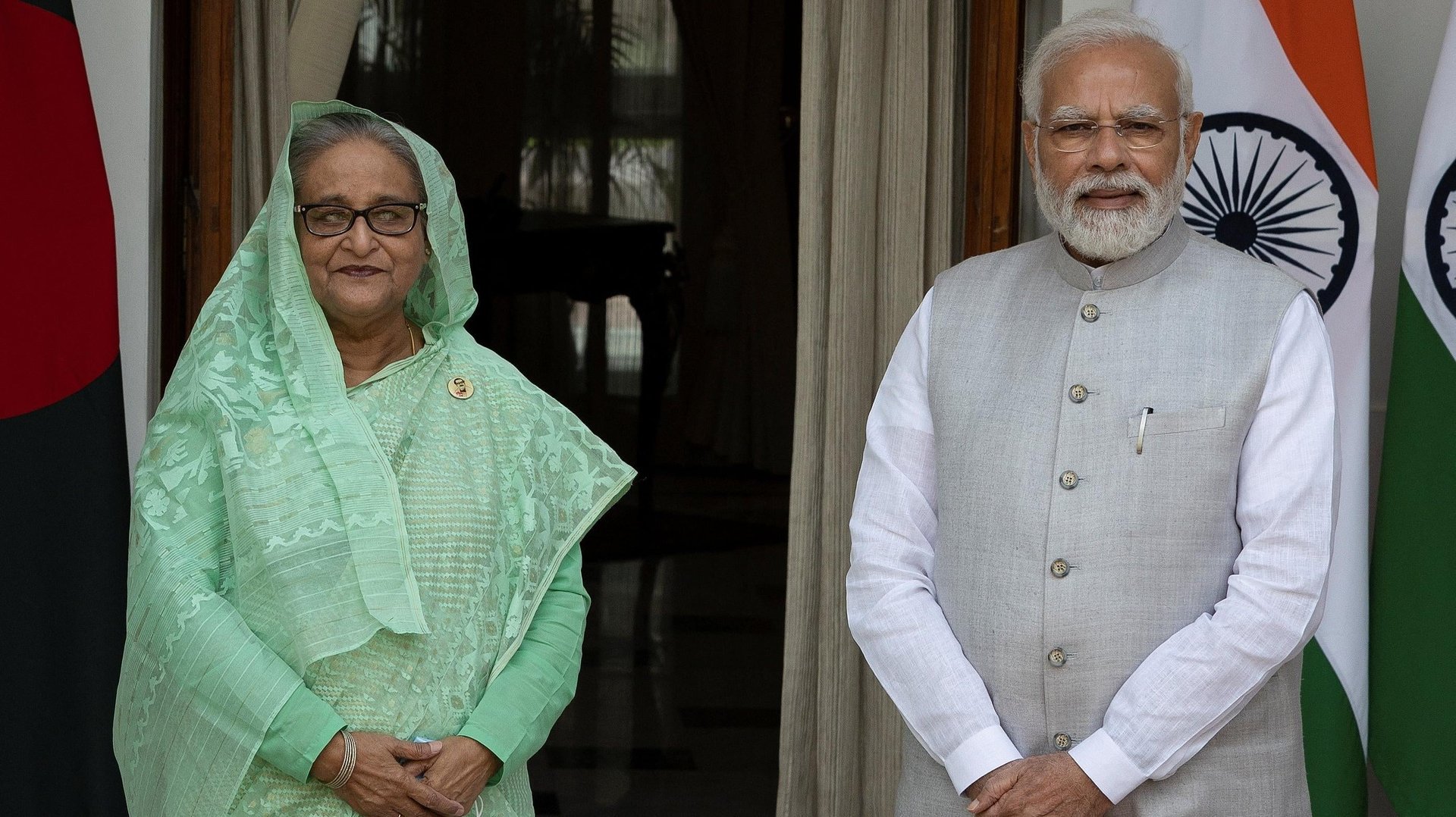India has a lot at stake in Bangladesh's upcoming election
With national security on the line, the world's largest democracy

India is rooting for an incumbent as Bangladesh goes to the polls on Jan. 7.
Current prime minister Sheikh Hasina, who served in the top job between 1996 and 2001 and was reelected in 2009, is seeking a fourth consecutive term in the the Muslim-majority country of 170 million. And while it’s made no official endorsement, its neighbor is hoping that the Awami League party leader retains her power. India, for its part, has plenty at stake in the results.
Bangladesh, which shares a border with India on three sides, saw many of its people migrate to northeastern Indian states like Assam, Mizoram, and West Bengal after its 1971 Independence War—one India helped it win. For half a century, India and Bangladesh have shared history, culture, social structures, and economic viewpoints. And today, maintaining relationships between the two countries is crucial to the security of India’s northeastern states.
As Bangladesh’s 2024 election approaches, India has subtly signaled its support for the current regime.
Bangladesh’s national elections have long been a flashpoint for violence, protests, and accusations of rigged results; of its 11 national elections, just four have been considered free and fair. This year, the Awami League’s main opponent, the Bangladesh Nationalist Party (BNP), is boycotting the elections after Hasina refused to accept its proposition for a neutral outside government to oversee the polls. But while the US has called upon the prime minister’s party to come to agreements with the opposition, the world’s largest democracy has gone the other way—signaling support for how Hasina’s regime is handling things, and standing by its long-term ally.
Hasina and Indian prime minister Narendra Modi already have a healthy working relationship. Over the years, the Hasina administration has helped India clamp down on insurgents, terrorists, and separatists. The two governments have also partnered on infrastructure plans: Hasina and Modi have recharged rail connectivity through Bangladesh for transport in and out of India’s northeastern states, and Bangladesh allows India to use four of its ports to transport goods from one Indian state to another.
Hasina also maintains a supportive stance towards the Modi government, despite factions of the Bangladeshi public protesting against the Indian leader over his alleged involvement in anti-minority practices, from the 2002 Godhra riots where mostly Muslims were killed to the deteriorating state of human rights or Hindus and Muslims in Jammu & Kashmir.
Bangladesh’s dependence on India, by the digits
$7 billion: Credit India has extended to Bangladesh since 2010 for infrastructure and development projects
54: Rivers Bangladesh and India share, a key source of water resources
131 km: The pipeline project that connects Siliguri, West Bengal, and Parbatipur, Dinajpur, which can transport about 1 million metric tons of diesel from India; 126 km of the pipeline is located in Bangladesh
$934 million: Value of Bangladesh’s rice imports from India, the largest source for the nation; Burma was a distant second at $44 million. Dhaka is dependent on Delhi for essential commodities like rice, sugar, onions, garlic, ginger, and more.
Quotable: India’s growing friendship with Bangladesh
“PM @narendramodi had productive talks with PM Sheikh Hasina on diversifying the India-Bangladesh bilateral cooperation. They agreed to strengthen ties in host of sectors including connectivity, culture as well as people-to-people ties.”
—Indian prime minister’s office on Sep. 8, 2023, on X